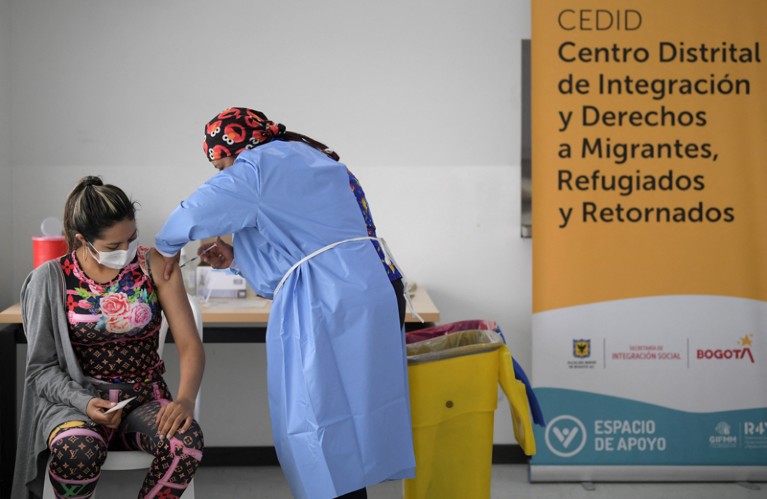Immune responses to SARS-CoV-2 decline sharply within eight months of the second jab of the Pfizer–BioNTech or Moderna vaccines, but remain relatively stable after a single shot of the vaccine produced by Johnson & Johnson.1.
Dan Barouch at the Beth Israel Deaconess Medical Center in Boston, Massachusetts, and his colleagues monitored levels of antibodies that can block, or ‘neutralize’, the coronavirus in people who had received either the one-dose Johnson & Johnson jab, which relies on a non-replicating cold virus, or two doses of the Pfizer–BioNTech or Moderna vaccines, which are based on messenger RNA.
In people who had received an mRNA vaccine, neutralizing antibodies peaked at very high levels a few weeks after the second shot. But these levels dropped drastically during the six months after the second shot — and decreased even further over the next two months. By contrast, neutralizing-antibody levels didn’t rise as high early after the Johnson & Johnson vaccination, but remained relatively stable for eight months.
These findings suggest that the degree of long-term protection people get against COVID-19 might depend on the type of vaccine they receive.
Johnson & Johnson subsidiary Janssen provided funding toward the research.




